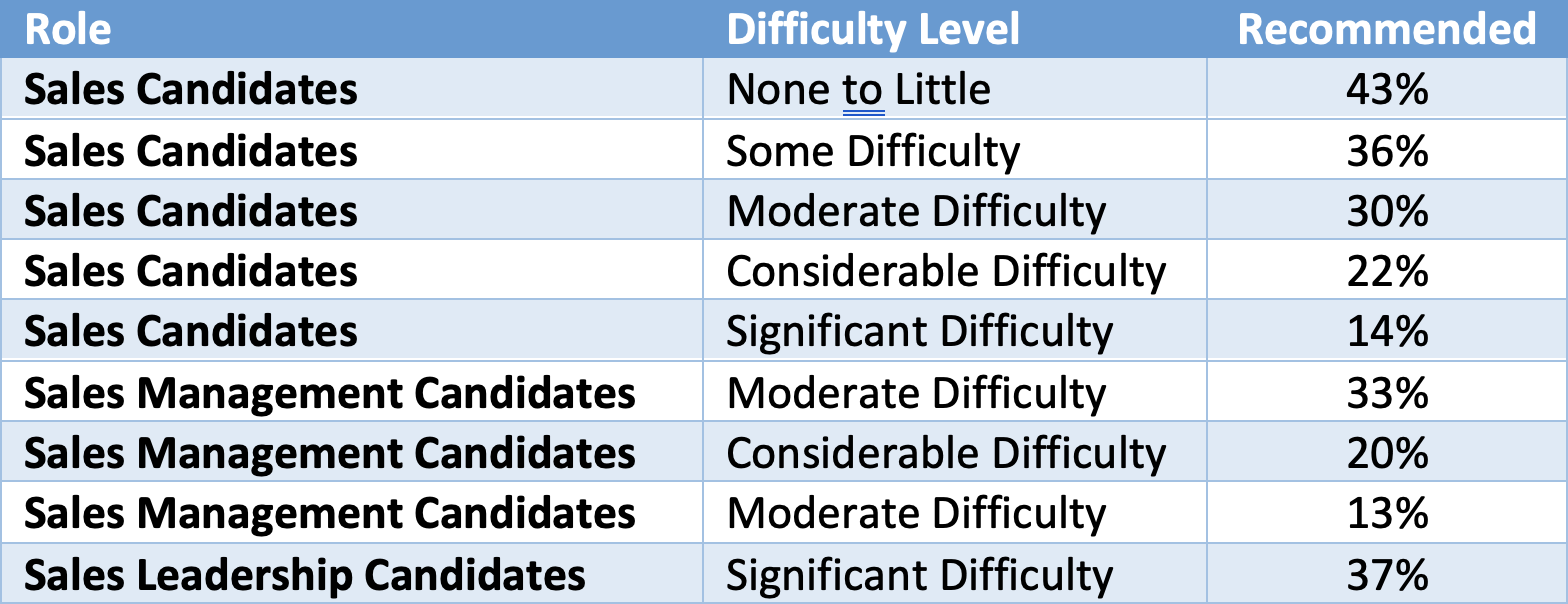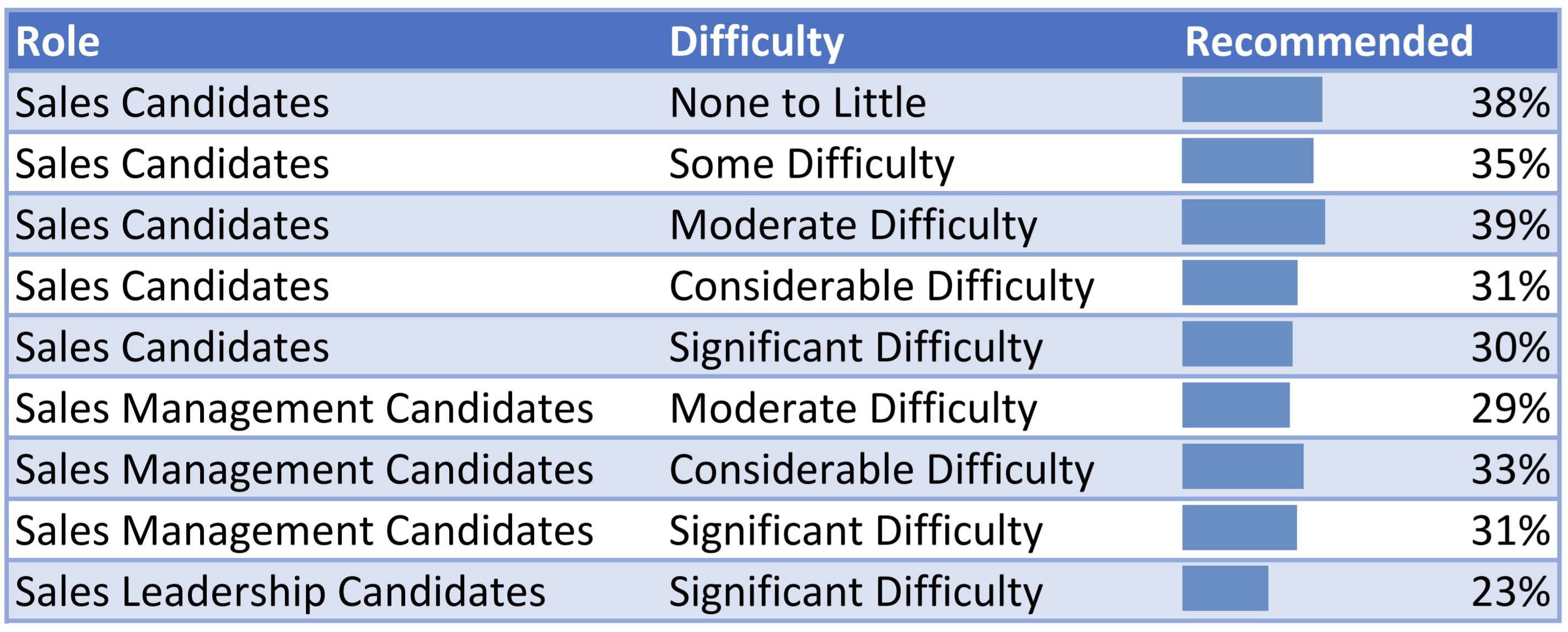- June 24, 2021
- Posted by: Dave Kurlan
- Category: Understanding the Sales Force

We are finally doing things we haven’t done for quite a while including dining inside restaurants, flying, staying in hotels, going to and hosting parties, attending packed stadiums for sporting events and more. Something else we haven’t done for quite a while is revisit Objective Management Group’s (OMG) sales selection statistics on the percentage of people that are recommended for various selling and sales management roles.
The last time we looked at recommendation data was in 2014! In the seven years since we have seen a sluggish economy (2014-2016) with lots of candidates to choose from, a robust economy where candidates were very difficult to find and attract (mid-2017 to early 2020), a non-existent economy hammered by COVID (2nd quarter 2020- through the 1st quarter of 2021) with a decent supply of good candidates, and now back to a robust economy with good candidates scarce once again (2nd quarter 2021).
I was interested to learn how the recent recommendation data compared with the recommendation data from seven years ago.
First, let’s define what a recommendation means.
Every OMG sales, sales management and sales leadership assessment has some criteria that is set in stone, some that varies with the difficulty of the role, and some that is client-side specific. Candidates must meet the criteria in all three areas to be recommended. Good salespeople are sometimes not recommended for certain roles because they aren’t a good fit while mediocre salespeople are sometimes recommended for certain roles because they are a great fit. It’s too complicated to get into customization criteria in an article like this but the goal of OMG’s candidate assessment is to get the right people into the right roles and there is a huge difference between all the possible selling roles in all the companies in all the industries where OMG assessments are utilized.
To get a sense for differences, even in the same industry, please refer to this article.
OMG allows five levels of difficulty for its sales roles, three for its sales management roles, and two for its sales leadership roles. To give you a sense for how those difficulty levels differ, consider the following examples:
- Little to No Difficulty – salesperson checks stock, fills stock with order updates. An order-taker.
- Some Difficulty – industrial sales of supplies used in maintenance, repair and operations (MRO) A better order-taker.
- Moderate Difficulty – government sales, mostly bid work, but selling the reason to choose you at a higher price.
- Considerable Difficulty – 6 or 7 figure consultative sale of capital equipment against formidable competition.
- Significant Difficulty – 6 and 7 figure consultative sale of services to the C Suite in a long sales cycle competing against formidable competition
Now that you have some context for the difficulty levels, let’s take a look at the before and after data and.


2014 2021
So what are the noteworthy changes?
The percentage of candidates being recommended for the most difficult and challenging sales roles has almost doubled!! That’s right. Two exclamation points on that one. Unfortunately, it doesn’t mean that there are more strong candidates than seven years ago, but it does mean that companies are improving their ability to target and attract the good salespeople into their candidate pool.
Similarly, a higher percentage of sales managers are being recommended at the higher levels. As with sales candidates, I attribute this to better targeting and attraction tactics.
The percentage of sales leadership candidates being recommended has dropped – a lot. There are a lot more sales leadership candidates out there today than in 2014 and most of the candidates don’t meet the significantly higher bar that exists for sales leaders today.
Finally, some HR and Sales Leaders are horrified and all recruiters are pissed when so many of their candidates are not recommended. But isn’t that why you choose an accurate and predictive assessment like OMG in the first place? You choose OMG to AVOID making the mistake of hiring someone who can sell but won’t, who sounds good but isn’t, who sells you but doesn’t sell anyone else, or who simply isn’t a good fit for the role.
Check out OMG’s accurate and predictive sales candidate assessments.
Image copyright 123 RF
